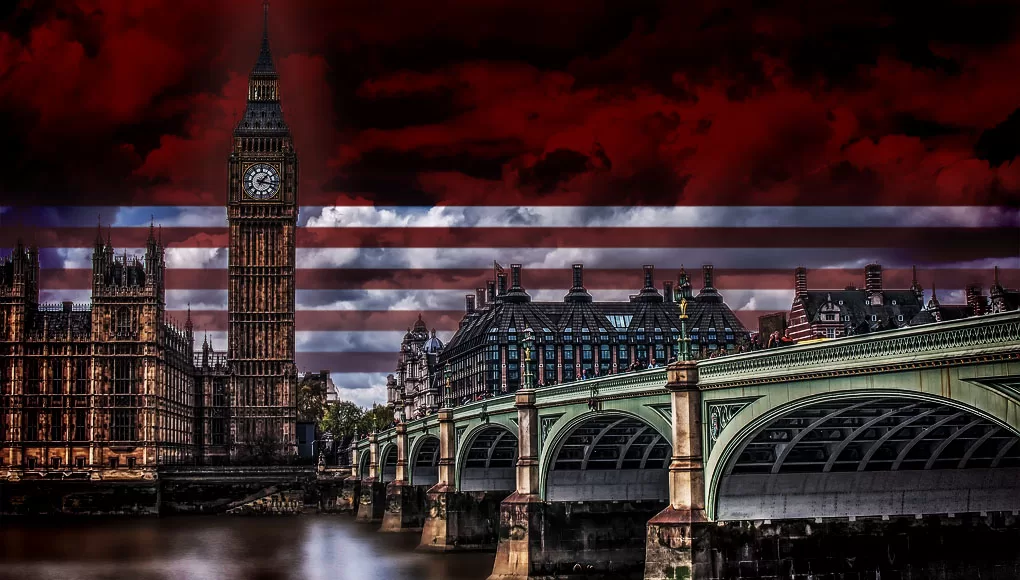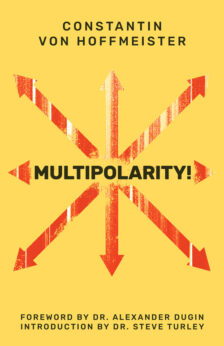Homecoming, Kairos and Cultural Tectonics
In attempting to understand contemporary ideologies, one must conscientiously stand back from the simple polarisation of left and right and good and bad. A broad-angle view of politics suggests that individual affiliations arise in peculiar constellations and often (but not always) change across one’s lifespan. This is true of religious affiliations too. A common pattern is seen in adolescent emotional attachment to a radical political idealism such as socialism, a position that frequently remains and hardens with age and habit, as the individual is determined to ‘keep the faith’ and battle the phantom enemy to the end. Youthful leftism is a more common combination than youth and rightism. This is complex territory and of course intersects with class, culture, gender and other factors. But broadly today youthful emotional judgements bend leftwards and often harden, at least in my social circles, with years spent in certain places, professions and over-exposure to the propaganda of The Guardian and the BBC. The world should be fair! Everyone should be equal! Suffering is bad and must be eliminated! Examples like Jeremy Corbyn show that some become frozen in adolescent time and unable to adapt to the nuances of natural limits.
I grew up with working class parents who fought for their rights and always hated rich and posh people. I took in many of those views without being aware of it. Then I lost interest in politics and turned towards a search for mystical transcendence and the meaning of life. Then I became a nihilist. Finally, only a few years ago, when I noticed that my country was being overrun by immigrants and political correctness, something in me flipped into battle mode and right-wing thinking. I fall into the large category of those who become more (small ‘c’) conservative with age. Across the decades I have read voraciously and independently. I have become increasingly aware of my previous ignorance, for example of whole subtle tranches of history, biology and psychology. This has in turn made me more aware of the ignorance of my friends and colleagues, who read almost nothing outside their chronic range of political convenience and loyalty, forever reinforcing their own established views. With Brexit, the banks of my tolerance for political correctness broke. I had out of conscience to do something, or write something, yet I could not afford to lose contacts and income, I was already too old for the garret existence, and so I compromised by using a pseudonym when Beware of the Underdog: How Political Correctness Harms Us (2018), and Excessive Immigration – and Britain’s Colourful Dystopian Sunset (2019) were published; and latterly writing Malignant Diversity: Western Civilisation Subverted by Mass Immigration, Insatiable Feminism and Confused Sexuality.
I do not fit the template of hardened, overt right-wing activist. One can understand the mounting frustration of Brent Tarrant, the Christchurch mass shooter, but his brutal actions are so extreme as to achieve nothing but hurt, further polarisation and retaliation. We begin to enter the problem of nuance when we ask why we are more moved by deaths caused by terrorists in Sri Lanka, Germany or Britain than those in New Zealand. I do not believe it is morally acceptable to kill non-combatants anywhere, but emotionally, like most people, I fail to weep at universal suffering and resonate more with my own kind than with distant strangers, particularly strangers whose religion is alien and whose increasing presence and assertiveness in my homeland is unwelcome. Then, unfortunately, we are immersed in tedious accusations of Islamophobia. Far too much theological and philosophical explanation would be required to refute the charge of Islamophobia than I possess the patience to convey. I do not want to see millions of Muslims in Britain and attendant changes to British culture. I do not know how to stop it. If I am honest, I despise those who cry ‘Islamophobia’ instead of engaging in nuanced dialogue; I despise their stupidity and the attempts to ban ‘anti-Muslimness’. I resign myself to hardened Islamic dogma coming between me and millions of Muslims and their emotionally driven, nuance-free social justice defenders. I am not ignorant of the different theologies involved and I make my judgement accordingly. We have a right to make personal judgements. Cultural pluralism sounds like a fine idea but in reality it has limits which we have already exceeded.
Things have changed tremendously in my lifetime and part of the change concerns immigration and its consequences. I imagine that when any SJWs who have strayed onto the wrong website read the word ‘immigration’, their brains fire up, and the terms bigot, xenophobe, racist and so on, quickly spring to their lips. Recent mass immigration is complex and citizens have a right to contemplate its effects on their quality of life. We have not been given this right by our politicians. Indeed, while outspoken politicians like Enoch Powell have voiced concerns going back to the 1960s, the overwhelming British majority who agreed with him have the same concerns today, but these are still ignored. Brexit too has captured the dividing line between politicians and public. The socially conservative majority have serious reservations about cultural and demographic changes and they are aware that they are regarded as stupid, ignorant oikophiles, wrong-headed lovers of their traditional homeland, by those cynical and naïve globalists in power.
It is in a niche far from the murderous activists like Tarrant and the emotion-driven SJWs, violent antifa, and craven politicians, that I find myself. I am fully and uncomfortably aware that the labels far-right, alt-right, and extreme right do not fit me, even though I know some hysterical leftists would pin those on me. My country has changed dramatically under pressure from cultural Marxist-like ethnic, feminist and LGBT bullying, and I do not like it. The public space in which one can declare such anti-PC views without censure has severely shrunk. As someone put it, it is now safer to illegally cross borders than it is to openly voice anti-leftist political opinions. In the latter case, you are likely to meet name-calling, reputation-trashing, loss of career and income, and in extreme cases death threats or actual murder. For merely voting for Brexit in an official national referendum, you may be called a fascist by any liberal-left ‘friends’ who are emotionally wedded to the bad dream of the EU. For merely expressing concern about the ‘Afropeanisation’ or Islamisation of Europe you are likely to be branded as racist rather than a principled demography watcher. Yet books like Stephen Smith’s The Scramble for Europe calmly predict exactly such trends as a kind of inevitable consequence of migrant numbers and karmic payoff.
It is the spectrum of the right-wing political menu that throws up obstacles for many who are looking for a new home. In the British context, almost nobody wants to be associated with anything remotely Hitlerian and Holocaust-associated, with brownshirts and the KKK. Some are nervous about organisations like American Renaissance and publications like Breitbart that SJWs perpetually tarnish with the neo-Nazi brush. A majority of ordinary people are not especially interested in matters of deep ethnicity and national mythology. Insults like soft bigotry, cuckservative and Brextard are enough to scare some off. Leftists have successfully branded every movement slightly to the right as suspiciously hateful, with even the mainstream Daily Mail being painted as peddling only hate. The traditional Conservative Party has been consistently losing credibility for its incompetence. The rise and fall of UKIP both boosted Brexit and then fuelled some disillusionment. Farage’s Brexit Party may have some short-term influence on events. However, leftists have been winning the propaganda war, and rightists (for want of a better term) continue to lack credible, articulate leaders of an acceptable, intelligent calibre. Suitably right-wing politicians and intellectuals in North America and parts of Europe sadly have the edge on their cowed British counterparts.
I have mused in my books on whether the SJWs are winning or eating themselves, and in conversation with a small group of like-minded, mostly online contacts, I meet a similar uncertainty. Is political correctness, the erosion of free speech, getting better or worse? On the negative side, it appears that both legal and illegal substantial immigration continues with all its associated impact on crime rates, employment, education, health and housing problems. The ongoing, wilful thwarting of Brexit could yet lead to the kind of social unrest that would force politicians into action, but the silent British majority does not easily take to the streets to protest. Not many are sufficiently troubled by yet another academic being sacked, or by students calling for the decolonising (dumbing down) of the curriculum, to take action. The chronic, absurd demands of extreme feminism and the radical LGBT movement are not quite so disturbing for non-Guardian readers. The so-called fascist backlash that is perpetually announced by leftists is a long time coming in the UK.
We all have some instinct for proportionality in different domains. On immigration, we differ across the ‘let them all in’ and ‘throw them all out’ spectrum. Neither is realistic. We may well disagree on where the line, if any, should be drawn. On abortion, miscegenation, non-binary sexuality and the interchangeability of gender roles, we probably all have different views. On optimal population, if we can even talk about it, we cannot agree on whether 67 million is enough in the UK, or if an upper functional limit of, say, 100 million should be recognised (and some would argue for lower and higher limits). What we could all engage in is calm, intelligent analysis of the factors involved, whether negative or positive. This becomes impossible, however, when emotion takes hold. Many non-white activists are suspicious of objectivity, Jonathan Marks in his book Is Science Racist?, for example, regarding Western science as steeped in unconscious racism. The grounds for civilised dialogue are shaky. But as we know, differences even within like-minded groups can reach intolerable proportions. Homeostasis in human affairs is variable and challenges often reach critical proportions. It seems unlikely that the current attritional culture wars can be sustained much longer, and increasingly likely that an unpredictable major shift will be forced upon us.
Conservative realism holds that social changes happen gradually, at an evolutionary pace, except perhaps for major shifts like the industrial revolution. Variants of socialist change favour a revolutionary pace, although the long march of the cultural Marxists knows how to bide its time. The radical immigration-gender-sexuality changes of the past few decades began in piecemeal fashion but are accelerating. Now any brake on so-called liberal-progressivism is screamed down as fascism, and it may be true that the ‘far-right’ (if such an entity actually existed) would dramatically and violently overturn liberal gains. A major incident in the UK or internationally, the unexpected rise of a political strongman, events creating a kairos or timely moment, could break the current impasse. Perhaps a deserved collapse of the no longer fit for purpose university system, and/or the NHS, would herald a large-scale transformation in politics. Roger Scruton has suggested ending state support for British universities, or at least for their heavily leftist arts, humanities and social science departments. But such changes probably happen tectonically rather than triggered by emotional or rational factors. In the meantime, a couple of barely noticed pseudonymous books here and there that criticise leftism will hopefully nudge some towards awakening but will not effect change on any significant scale.
Ours is being mistaken for an era of war between good and evil, with the political left and right each positioning themselves virtuously. But the real concern is for deep pragmatism in the service of retaining and reinvigorating core European values. This is not a time for emotion and nostalgia but for guidance by instincts. We also need to recognise that in the complexity of our age, misinformation abounds; and in order to flourish, an understanding of ignorance – ours as well as theirs – is necessary. The youthful street-fighting instincts of the left combined with its grasp of propaganda has outpaced conservative strategies and the fightback must begin with this acknowledgement. The right must relearn how to appeal to honourable national identity and at the same time to ramp up its intellectual apologetics, along with offering a vision of an anti-effete future characterised by vigorous deployment of the will not merely to salvage but to rebuild infrastructure and technology. The nasty, selfish, violent image of the right – from colonialism to Nazism, to Ayn Rand and to Thatcher – has to be discarded in favour of a new horizon of hard-earned shared prosperity. Europeans need to re-assert the realities of European distinctiveness as outlined in Charles Murray’s magisterial Human Accomplishment instead of stupidly ‘decolonising’ the curriculum. This is likely to call for a post-multicultural vision based on commonsense, steady advance, virtuous ambition, and transcendence of dispiriting social polemics. We are unlikely to thrive in an overpopulated and ethnically riven society: a line has to be drawn. The time for fighting like children and hurling insults is over. The time for being suckered by Hitlerian beer-hall rabble-rousing and Obama-like vacuous charm is over.
At the moment the awakening forces of anti-leftism are somewhat inchoate, unfocused and leaderless. The recruitment of ex-leftists for political work takes time. Although there is a mounting presence of black and ethnic minority citizens who reject the lazily expected leftist affiliation, they are vulnerable to bullying, just as small groups of conservative students in the UK are under-supported. Current education systems, the media and publishers are overwhelmingly, indeed often aggressively leftist in loyalty. The right needs to build well-financed opposition in the form of legal funds to defend attacked academics, and far stronger support for right-wing publishing. The fight against censorship on social media has to be emboldened. But all such cerebral work needs to be complemented by the muscular development of advanced scientific, industrial and technological enterprise in ways that are visible, palpable and evident across the UK; not merely empty talk of a northern powerhouse, for example, but real investment. People are tired of empty promises. Apprenticeships should be taking back ground from useless and politicised university education. Firm commitments to border control, a reinvigorated military and well-staffed police force would be supported by a majority of the public if promoted as essential national services rather than ideological measures. Decent patriotism instead of national humiliation can be restored. Genuinely intelligent leadership rather than the feeble, fake or bluster-like usual version will be recognised.
Literary wish lists do not provide answers, they merely help to pave the way. Too bad some of the most passionate and articulate rectifying spokesmen like Roger Scruton, Douglas Murray (and the Canadian Jordan Peterson) are not politicians. Is the long-standing educational rot in Britain so deep that no outstanding leaders are being produced or can yet be found? Part of the problem lies in the history of conservative or right-wing thought, which can be said to range across Burke, Nietzsche, Rand, Hayek, Friedman, Scruton, Charles Murray and many others; and spans the morality of restraint, love of traditional beauty, neo-Darwinian sociobiological survival of the fittest, cowboy capitalism and economic globalism. The novelist John Fowles wrote in his small book of philosophy The Aristos against obsession with money, while retaining respect for excellence and the reality of inequality. Unfortunately, for both political right and left there are no easy, off-the-hook one-size explanations. But there are instincts. And what is needed now – some of us believe – is the instinct for European cultural self-respect and rebuilding. Firmness and vigour have been surrendered since the last war and are constantly conflated with dictatorship; but any intelligent observer can see that our contemporary fake democracies are dysfunctional, and centralised EU bureaucracy is, as Gorbachev once remarked, a disastrous imitation of totalitarian Soviet culture within Europe. Social justice has a germ of truth in its demands for some redistribution of wealth but its totalitarian aims and methods speak negative volumes for themselves.
Almost nobody wants a major war in Europe, but our long peace (sometimes falsely attributed to the existence of the EU) has fostered effeteness, fear of national assertiveness, parasitism, and internal terrorism. Promotion of strong leaders and national greatness are vilified in favour of ‘liberal democracy’, human rights for designated grievance groups and unquenchable demands for so-called social justice. Meanwhile, the reputations of eminent scientific pioneers like Francis Galton and James Watson – and even Einstein – are trashed by SJWs. Space travel has stalled for fifty years in the wake of the critical ‘Whitey’s on the moon’ trope, although space probes are gradually extending our knowledge. In the UK context, outstanding pioneers in science and engineering like Newton, Faraday, Darwin, Galton, Brunel, Hawking, Berners-Lee and others remain unsurpassed, but attempts to de-emphasise the ‘great (white) man’ narrative may yet succeed in reducing us to a lowest-common-denominator culture. The politics of envy and IQ-denialism in the guise of social justice is erasing respect for scientific achievements. While the Nazi eugenics programme was rightly criticised and halted, the unchecked dysgenics propagated by mass migration, extreme feminism and LGBT advances (and, ironically, life-extending medical research and provision) may yet imperil humanity much more. Open discussion of such phenomena is shut down, however, by savage leftist authoritarian censorship mechanisms. Rome did not fall in a day and current Western civilisation may or may not fall, depending on the tectonics, awareness, intelligence, will and courage of those who are motivated by the right stuff.







